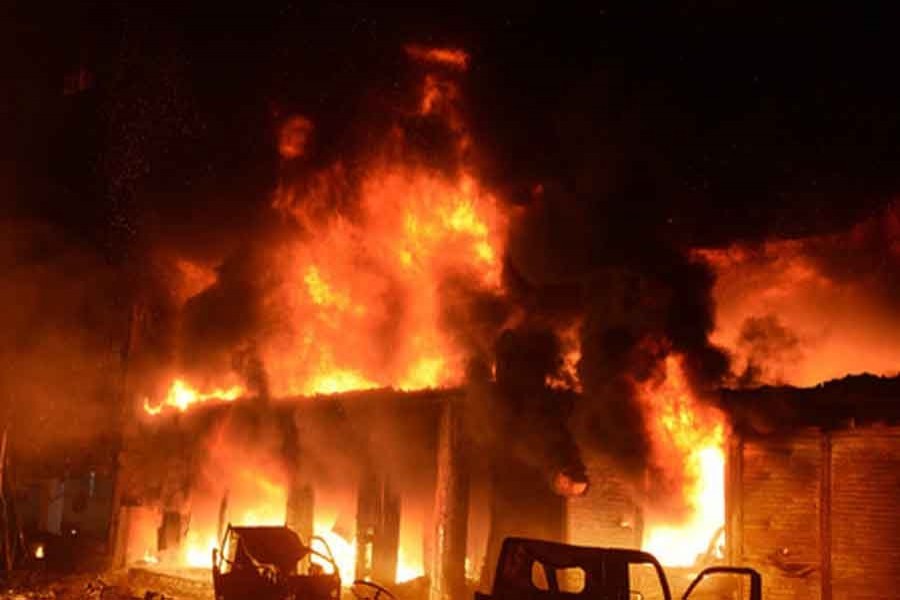
Published :
Updated :

At the end of the day, all mishaps prove to be accidents. This is how humans have been taught to believe. The down-to-earth and the pragmatic people cannot be convinced of this statement. They also negate the fatalists, who always blame the fate for tragic events like accidental deaths. Maybe, fate's string-pulling decides things. The modern people cannot be convinced of this argument. He or she is not prepared to believe these aberrations as mere ordinary incidents happened by chance. They call this style of bringing up fate as a ploy to escape blame. The two recent back-to-back incidents of explosions that rocked the capital and claimed a number of lives on March 5 and 7 cannot be brushed aside as simple accidents. It's the common trend to belittle human errors and duty-dodging whenever large-scale accidents take place. The 21 people who had lost their lives and been on the Gulistan explosion spot on March 7 were caught amid a busy-hour blast. Their near and dear ones never thought of this tragic end to these people's lives even in their grisliest of nightmares. Nor even the persons close to them.
Fate is sometimes called blind and deaf. It works in its own and unique way. A section of people take this chance to shirk their responsibility. They are unaware that they can commit unconscionable blunders leading to innocent people's deaths and injuries. In the Science Laboratory blast on March 5, it was primarily found that 'accumulated gas' was the culprit. Whatever may be the case, the victims would be termed 'ill-fated persons', a term long used to describe launch or motor accident victims. On the other hand, the term fate is indiscriminately used in all abnormal situations that lead to human casualties. Deaths in robbery or mugging cases, in building collapses or massive fires or explosions are also singled out as the work of fate. Fatalists would say all people are destined to one or another end as dictated by fate. But there are questions. Few are prepared to raise controversies over normal deaths, unless there are circumstances that point to wrong treatment or wrong medication. The deaths of 124 persons in the 2010 Nimtoli multi-storey apartment fire can be termed as having been engineered by the dictate of fate. If this is taken for granted, it amounts to doing injustice to those who have faced agonising deaths in the blaze. It's because this mindless conclusion eventually absolves the perpetrators of the deadly blaze of their dastardly acts.
Had they not rented out their building to makeshift and hazardous chemical factories, the blaze wouldn't have originated. The Nimtoli fire was a blatant case of letting a case of killings creep into the building. That the building would catch an accidental fire leading to scores of deaths was a foregone conclusion. The case reminds many of the Marquez novel 'Chronicles of a Death Foretold'. The chilling conclusion: the whole process of the fire outbreak, the building occupants' desperate attempts to escape the flames, their cries for help --- all drew the scathing picture of an unfolding tragedy. In one sense, all the 124 persons were destined to death. But here the unpardonable negligence towards the building occupants' safety plays a dominant role in the deadly fire. Not the widely used and hackneyed phenomenon of 'fate'.
The three million innocent Bengalees who were killed in the 1971 genocidal killings by the Pakistan occupation army could be called the victims of fate. But as the dispassionate history stood witness to the brutal killings, the whole saga was one of a cold-blooded genocide. Many people may call the victims ill fated, as it's an age-old expression. But the persons who became the targets of genocide could feel how cold death devoured them as they were dragged to the killing fields. Fate didn't kill them.


 For all latest news, follow The Financial Express Google News channel.
For all latest news, follow The Financial Express Google News channel.